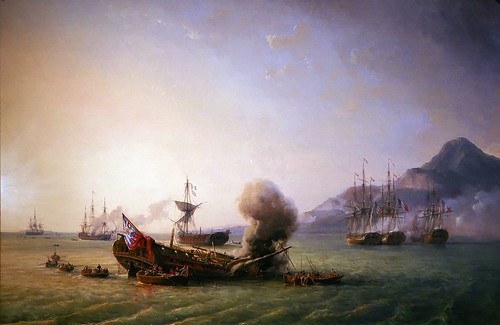Caleb Bradham’s beverage “Brad’s Drink” is renamed “Pepsi-Cola”.
Tag Archives: 28 August
28 August 1963
March on Washington for Jobs and Freedom: Rev. Dr. Martin Luther King Jr. gives his I Have a Dream speech.
28 August 1914
World War I: The Royal Navy defeats the German fleet in the Battle of Heligoland Bight.
28 August 1879
Cetshwayo, last king of the Zulus, is captured by the British.
[rdp-wiki-embed url=’https://en.wikipedia.org/wiki/Cetshwayo_kaMpande’]
28 August 1609
Henry Hudson discovers Delaware Bay.
On Aug. 28, 1609, English navigator Henry Hudson discovered Delaware Bay.
In 1749 German poet, dramatist and philosopher Johann Wolfgang von Goethe was born in Frankfurt, Germany.
In 1917 10 suffragists were arrested as they picketed outside the White House.
In 1925 actor-dancer Donald O’Connor was born in Chicago.
In 1928 an all-party conference in Lucknow, India, voted for dominion status within the British empire.
In 1963 Rev. Martin Luther King Jr. delivered his famous “I have a dream . . .” speech to 200,000 people at a peaceful civil rights rally in front of the Lincoln Memorial in Washington.
In 1968 Vice President Hubert Humphrey was nominated for president on the first ballot at the stormy Democratic National Convention in Chicago.
In 1971 Ziggy the Brookfield Zoo elephant that once tried to kill its trainer was allowed outdoors for the first time in 30 years.
In 1976 scientists at Massachusetts Institute of Technology reported they had created an artificial gene, the basic unit of heredity.
In 1979 Judge Louis Garippo ruled that John Wayne Gacy would face charges in a single trial that he murdered 33 boys and young men in Chicago. He would be found guilty.
In 1983, citing personal reasons, Israeli Prime Minister Menachem Begin announced he would resign. He did so on Sept. 15.
In 1985 actress Ruth Gordon, 88, died in her home in Edgartown, Mass.
In 1990 a tornado cut a 16-mile swath through Will County, killing 29 people, injuring 354 and causing $160 million in damage.
In 1992 the federal government launched two massive relief operations, rushing food and drinking water to hurricane-ravaged Florida while cargo planes landed in Somalia with tons of food for African famine victims.
In 1995, as the Balkans war raged on, a Serbian rocket struck a crowded market in downtown Sarajevo, killing 37 civilians.
In 1996 President Clinton was nominated for a second term by delegates to the Democratic National Convention in Chicago’s United Center. Also in 1996 the troubled 15-year marriage of Britain’s Prince Charles and Princess Diana officially ended with the issuance of a divorce decree.
28 August 1810
The French accept the surrender of a British Navy fleet during the Battle of Grand Port.
The Naval Battle of Grand Port marked a decisive turn in the colonial history of Mauritius.The island occupied a key position in the Indian Ocean and was much coveted by some rival European nations fighting to establish their supremacy in the region during the colonial period.
In 1810 Britain, which had gradually reinforced its military presence in the Mascarenes to protect its interests, launched an attack at Grand Port against the French who settled in Mauritius to take possession of the island.
After being colonised and abandoned by the Dutch, the island passed under French dominion in 1715. Notable French governor Mahé de La Bourdonnais, who greatly marked the history of Mauritius by his extensive development of the colony, used Mauritius as a naval base to lead military expeditions to support French troops in India who were fighting the British.
Wealthy French traders of the island called “negociants” armed cargo ships for corsair operations. Corsairs in Mauritius (which was named Isle de France by the French) attacked defenseless British merchant vessels and looted their precious cargoes loaded in India for trading in Europe. These attacks severely disrupted British trade in the Indian Ocean as well as disturbing the reinforcement of the growing British Indian Army. On their return route from Britain to India, these ships often carried British soldiers.
The corsairs were granted written legal authorisations or “Lettres de marques” by French governor Malartic which demarked them from pirates.
Following the outbreak of the Napoleonic Wars in 1803, the security of these routes became a high priority for the British Admiralty. To protect their interests, the British gradually increased their naval superiority in the region.
28 August 1810
The French accept the surrender of a British Navy fleet after the Battle of Grand Port.
28 August 1996
Charles, Prince of Wales and Diana, Princess of Wales divorce.
28 August 1845
Scientific American magazine is published for the first time.
28 August 1810
The French accept the surrender of a British Navy fleet to end the Battle of Grand Port.


